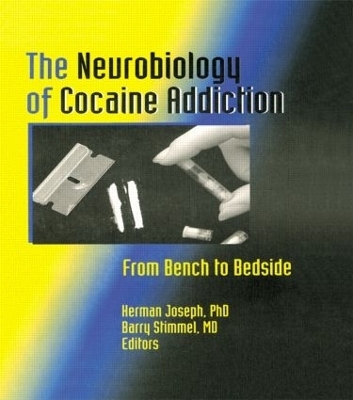
The Neurobiology of Cocaine Addiction
From Bench to Bedside
Seiten
1997
Routledge (Verlag)
978-0-7890-0031-6 (ISBN)
Routledge (Verlag)
978-0-7890-0031-6 (ISBN)
With the use of crack on the rise in American cities, there is more need than ever to understand the biological, environmental, and social factors behind cocaine addiction, as well as the pharmacological properties of cocaine that make it such an addictive drug. The Neurobiology of Cocaine Addiction helps clinicians and researchers analyze research findings and their relevance to the clinical treatment of cocaine dependency. To do this, it looks at the whole spectrum of cocaine use, from trends in cocaine-involved deaths, hospital emergencies, arrests, and treatment admissions to the specific impact the drug has on brain function. The book reports on important findings from positron emission tomography (PET) and a “binge” pattern cocaine administration mode. This will enable you to improve your understanding of how cocaine alters the pleasure/reward system of the brain and creates new instinctual needs that displace the inherent instinctual needs of hunger and sex.By reading The Neurobiology of Cocaine Addiction, you will sharpen your knowledge of the basic actions of cocaine, the factors related to daily cocaine use, the neurobiological basis of addictive diseases, and drug-induced alterations in normal physiology. You will also learn about:
the coexistence of cocaine and heroin addiction
cocaine’s disruption of the endogenous opioid system
QEEG and how it can play a potentially useful role in drug development and planning
hypotheses of sensitization in the pathophysiology of cocaine dependence
factors that predict daily cocaine use among patients in a methadone maintenance program
abnormalities in brain function that persist for up to six months after last cocaine use
patterns of cocaine use
the importance of prospective data analysis and the limitations of a self-selective study groupClinicians, researchers, psychiatrists, and other professionals in chemical dependency and narcotics rehabilitation will turn the last page of The Neurobiology of Cocaine Addiction with a better understanding of cocaine’s addictive qualities and the characteristics of the individuals who become addicted to it. You will see what headway has been made in research at some of the nation’s top laboratories, but you will also see what remains to be done. Hopefully, you will find where you can make a contribution either at the practical level, the research level, or both.
the coexistence of cocaine and heroin addiction
cocaine’s disruption of the endogenous opioid system
QEEG and how it can play a potentially useful role in drug development and planning
hypotheses of sensitization in the pathophysiology of cocaine dependence
factors that predict daily cocaine use among patients in a methadone maintenance program
abnormalities in brain function that persist for up to six months after last cocaine use
patterns of cocaine use
the importance of prospective data analysis and the limitations of a self-selective study groupClinicians, researchers, psychiatrists, and other professionals in chemical dependency and narcotics rehabilitation will turn the last page of The Neurobiology of Cocaine Addiction with a better understanding of cocaine’s addictive qualities and the characteristics of the individuals who become addicted to it. You will see what headway has been made in research at some of the nation’s top laboratories, but you will also see what remains to be done. Hopefully, you will find where you can make a contribution either at the practical level, the research level, or both.
Herman Joseph, Barry Stimmel
Contents
Editorial: Basic Science, Epidemiology, Clinical Practice, and Philanthropy
Cocaine Trends and Other Drug Trends in New York City, 1986–1994
Daily Cocaine Use Patterns: Effects of Contextual and Psychological Variables
Neurometric QEEG Studies of Crack Cocaine Dependence and Treatment Outcome
Cocaine Addiction: Hypothesis Derived from Imaging Studies with PET
Cocaine, Dopamine, and the Endogenous Opioid System
Pattern of Cocaine Use in Methadone-Maintained Individuals Applying for Research Studies
Selective Guide to Current Reference Sources on Topics Discussed in This Issue
Index
Reference Notes Included
| Erscheint lt. Verlag | 18.3.1997 |
|---|---|
| Verlagsort | New York |
| Sprache | englisch |
| Maße | 152 x 229 mm |
| Gewicht | 408 g |
| Themenwelt | Medizin / Pharmazie ► Medizinische Fachgebiete ► Pharmakologie / Pharmakotherapie |
| Studium ► 1. Studienabschnitt (Vorklinik) ► Physiologie | |
| Naturwissenschaften ► Biologie ► Humanbiologie | |
| ISBN-10 | 0-7890-0031-8 / 0789000318 |
| ISBN-13 | 978-0-7890-0031-6 / 9780789000316 |
| Zustand | Neuware |
| Informationen gemäß Produktsicherheitsverordnung (GPSR) | |
| Haben Sie eine Frage zum Produkt? |
Mehr entdecken
aus dem Bereich
aus dem Bereich


